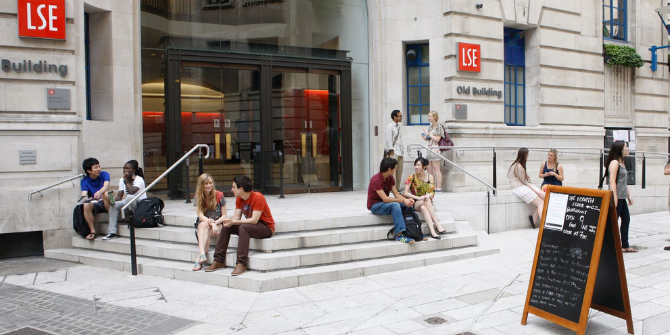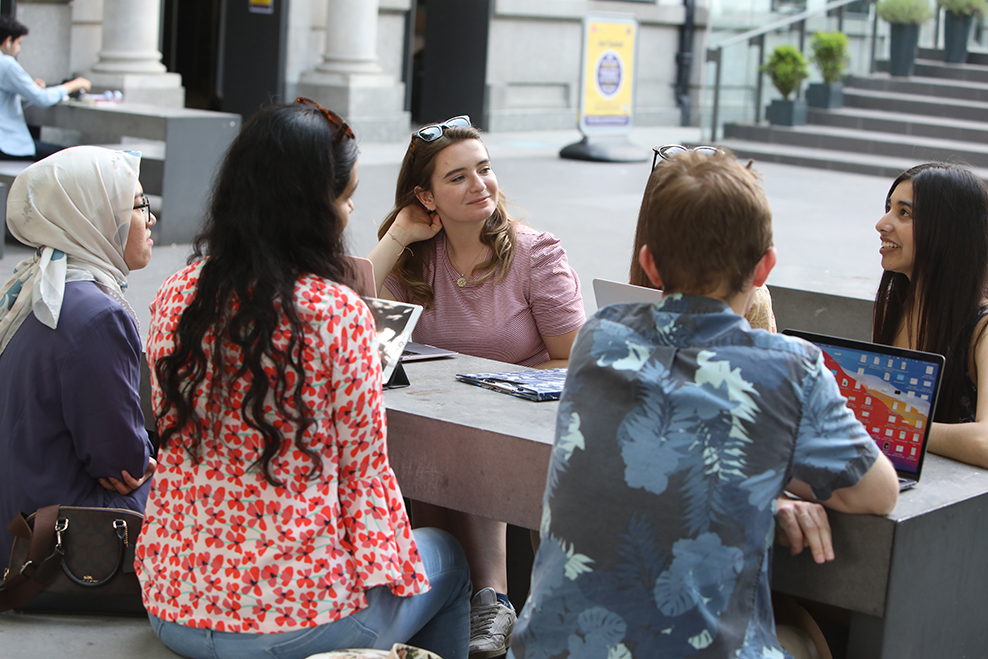To support your ongoing career progression, we invited three LSE PhD alumni to speak last week about their experiences of finishing up and moving on to work beyond traditional academic roles. The three perspectives were very different – have a look at their advice below, as well as how LSE Careers can support you.
Speakers
Amelia Sharman, Principal Climate Mitigation Consultant, Amec Foster Wheeler(AFW)
After three years in policy analysis at the New Zealand Ministry of Economic Development, Amelia obtained an MSc in Nature, Society and Environmental Policy (2008-2009) from Oxford University. She started her PhD in Environmental Policy and Development at LSE in 2011. She is now working in the Environmental Policy and Economics team at AFW where she provides technical and economic advice on the development and implementation of environmental policy and business response to policy at a strategic level.
Marek Mikuš, Max Planck Institute for Social Anthropology
Marek researches the highly politicised case of financialisation: the boom, crisis, and ongoing repercussions of household debt in Croatia. The work focuses on the intersections of debt with class and on regulative frameworks, political practices and social institutions that embed debt in moral economies. His PhD in Anthropology at LSE (2014) studied the roles of ‘civil society’ and the ‘state’ in the government of society, individuals and social restructuring in Serbia.
Maria Carvalho, Policy team on Climate Change and Environment, Grantham Research Institute
Maria’s work focuses on energy and climate policies for the EU and North America. Maria completed her PhD in Environmental Policy and Development at LSE, investigating how global competitive dynamics affect different economies’ ability to realise green growth. Prior to her PhD, Maria worked for New Energy Finance (acquired by Bloomberg) for two years in the Carbon Markets team. She has consulted for the World Bank, the Overseas Development Institute, the UN Commission on Trade and Development, and UCL’s Green Economy Policy Commission.
Lessons and themes
- Think hard about what you want to do, but be flexible in the execution of your plans. By reviewing your progress to date, knowing your CV well (its strengths and weaknesses) you start to focus on what you want next. Amelia had a very clear idea about the type of experience she wanted to get, searched hard on numerous vacancy sites and undertook further employer research to find a role in climate change. She was more flexible about specific organisations and sectors.
- Equally, personal values are very important – some more than others. Priorities about values might be clear for you already, or might change, so pay attention to them. Other issues such as location, role and type of organisation were important to some speakers. Becoming a migrant, moving country to achieve what you want, suits some people. Know what matters and what you’re willing to give up.
- Timing: managing the transition was not straightforward and deciding how to go about this was discussed. For some, being prepared early and applying while writing up worked, for others it didn’t and they experienced gaps after completion of the PhD. Although difficult at the time, these can be sorted out later.
- Researching opportunities, organisations and their needs takes time but opens up options that are not otherwise obvious. Gathering information and exploring the labour market can start with web searches but should also involve building your network of contacts, and talking to people who can provide more specific, relevant and idiosyncratic information.
- The importance of a perfect application was highlighted – spending time refining and preparing your CV, letter and other materials so that you only submit the very best. It may seem obvious but this was emphasised by our speakers as essential for success. They all took a lot of time with their applications and sought advice from others. Thankfully in this area the services of LSE Careers were appreciated by all three speakers!
- Outside academia the value of the PhD was complicated. In one case the organisation liked having a ‘Doctor on the team’ to present to clients as the ‘expert’ but did not want to value the PhD highly in terms of equivalent experience at selection. Negotiating hard on terms and conditions was acceptable and successful in the corporate world but would not have been in the research institutes.
- All three speakers are very happy in their current work but shared a view that this is not permanent. Careers continue to progress which means thinking ahead, imagining new roles in the same or other organisations, and continually learning about the labour market that matters to you. The first post after the PhD is another stepping stone in a continually evolving career.
Career information and appointments
Careers move in cycles and LSE Careers supports your progression whether you’re reviewing your current situation, exploring options, feeling unsure about the future, making applications, preparing for interview or assessing offers. The three speakers had all used our services and spent time investing in their careers and developing a strategy for the moving to the next stage and you can too!
Careers information, resources, and advice is all on the LSE Careers website and this blog. Vacancies and employer information are on CareerHub, where you can also book to get confidential one-to-one careers consultations. These are available through the year!





